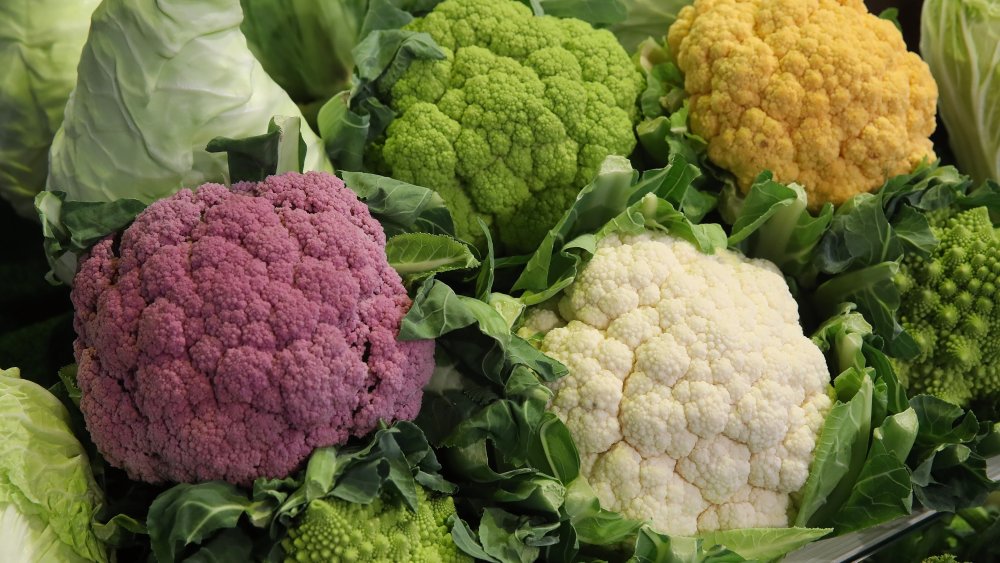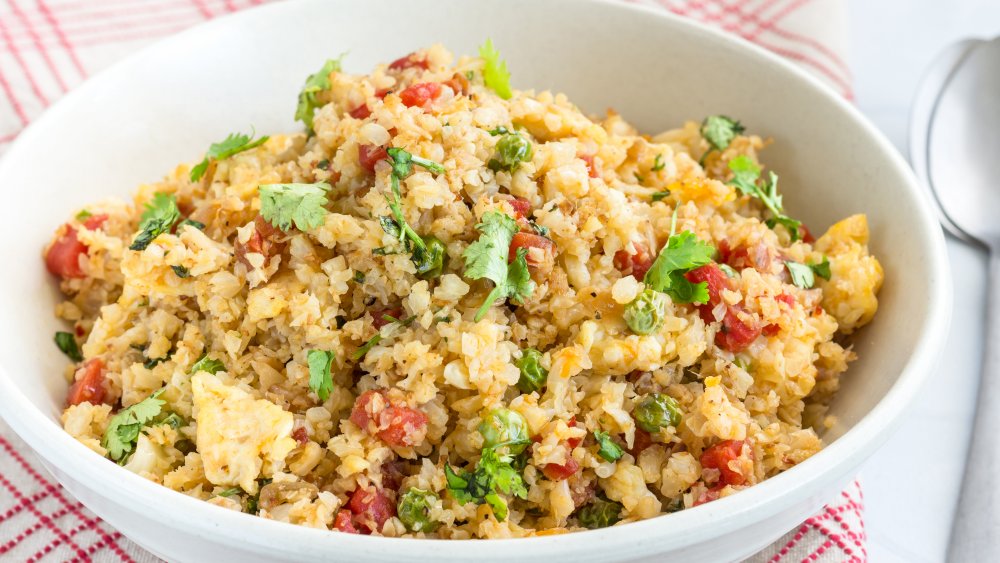When You Overcook Cauliflower, This Is What Happens
Cauliflower may just be the hottest vegetable around right now. Once relegated to a bland steam side or a couple of crunchy stalks to dip, this cruciferous vegetable can now be found buffalo fried, in pizza crusts, stir-fried with edamame and tofu, or mashed like potatoes. Seen as a healthy carb substitute, cauliflower is being tried like never before by health-conscious eaters across the nation. Unfortunately for many – the homecooked version often doesn't look like the Instagram recipes we all love.
Overcooked cauliflower is gross. Overcooking cauliflower makes it mushy and crumbly (via Bon Appetit). Cauliflower also releases a sulfur-like odor as it cooks. The longer the cook time the stronger the smell in general (via Recipe Tips). Like any vegetable, excessive cooking can also reduce the nutritional benefits of this super-vegetable. America's Test Kitchen explains cauliflower flavor is only created when you crush, cut, or damage the plant cell walls releasing a compound called myrosinase that then meets the sulfur-like compound glucosinolates to create an all-new flavor compound. Too little cooking doesn't create enough flavor compound, but too much cooking and all the flavor gets cooked out of the food. Taste tests demonstrated that the amount of time cooked (in this case blanched in saltwater) will have a dramatic effect on flavor. Testers found that 10-20 minutes of blanching produced a green and sulfury experience, 30-40 minutes produced a brown and nutty vegetable, and anything past that tasted like bland mush.
Tricks to keep your cauliflower tasting great
Fortunately, it's easy to cook cauliflower correctly – and there are a few tips you can try too. When blanching cauliflower, you can add a little lemon juice or vinegar to help the stalks retain their integrity. If cooking a whole head of cauliflower at once, you can try scoring an "x" into the bottom of the stock to promote more even cooking or roasting. This will minimize your potential to have an overdone outside and underdone center. Avoid cooking cauliflower in aluminum or iron. The vegetable creates a chemical reaction with these metals that will discolor the item and make it less appealing.
If you've already gone a bit overboard, there are also some ways to revive your dish if it isn't too far gone. Turmeric is a wonder spice when it comes to color. Add a dash of turmeric or curry powder to riced cauliflower to improve both visual appeal and taste. If all feels lost, consider the trusty cheese sauce. Cauliflower and cheese always pair well and a great gooey sauce can make up for a large number of cooking errors too.
Don't be afraid to try cooking this healthy and extremely useable veggie at home. A little cooking will go a long way, and it's generally affordable enough for some trial and error with the help of these handy tips.

